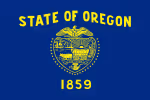Top-Rated Debt Collection Agency in Oregon
Efficient and Trustworthy Debt Collection in Oregon - No upfront fees, pay only when we succeed. Request your FREE Consultation or submit your claim today.

Unlock Effective Debt Recovery: Why Use Debitura for Streamlined Debt Collection in Oregon
Blending industry knowledge with tactical proficiency, Debitura is your surefire choice for comprehensive debt collection in Oregon. As a highly skilled Debt Collection Agency Oregon relies upon, our adept team efficiently navigates local regulations, ensuring smooth, compliant debt recovery. Offering robust services such as accounts receivable management and legal actions, we simplify the arduous process of reclaiming debts, freeing up your energy to focus on your core business. Trust Debitura to transform your outstanding receivables into viable capital, swiftly and professionally.

Oregon's comprehensive solution for A to Z debt recovery.

Data-informed, debtor-specific debt recovery in Oregon.

Harnessing 500+ international experts for effective debt collection.

Enjoy 87% debt recovery success in Oregon, hassle-free.
Key facts
- Oregon Debt Collection Laws: Debt collection in Oregon is regulated by both federal and state laws, including ORS Chapter 646.
- Statute of Limitations: In Oregon, the statute of limitations for written and oral contracts is 6 years, and 2 years for personal injury cases.
- Interest Rates: Unless otherwise agreed, lenders in Oregon may charge up to 9% interest.
- Late Payment Fees: The maximum late fee for overdue invoices in Oregon is 5% of the balance per month.
- Wage Garnishment: The maximum amount that can be withheld from a debtor’s wages is 25% of weekly disposable earnings.
- Small Claims Limit: In Oregon, debts up to $10,000 can be sought in small claims court.
- Arbitration: Oregon has mandatory, non-binding arbitration for cases under $50,000.
- Collection Methods: After obtaining a judgment, a creditor can pursue collection through bank account garnishments, POE garnishments, and debtor exams.
- Foreign Judgments: Foreign judgments can be registered in Oregon under ORS Chapter 24.
- Collection Costs: Costs associated with debt collection in Oregon include filing costs, service costs, motion costs, and more.
This guide is not legal advice and laws/rules may change; consult a qualified professional for personalized assistance. Use at your own risk.
Introduction to Debt Collection In Oregon
Debt collection is a legal process, wherein entities or people owed money, referred to as creditors, make attempts to secure repayment from individuals or businesses in debt, known as debtors. Due to the diverse nature of debt and creditors, it is common for third-party agencies to be engaged to collect owed amounts - these are referred to as collection agencies.
The individual or business owing the money (debtor) is typically contacted by the creditor or the collection agency. It’s important to understand that the debtor has the responsibility to repay these debts within the terms agreed upon originally, otherwise, these debt collection activities commence.
The business awaiting payment is the creditor. This party has the right to seek payment for goods or services rendered if payment is overdue. In order to maintain their own financial stability, it is vital for this entity to seek and receive payment for their deliverables.
Key Stages in Debt Collection
The collection process typically goes through several key stages. As a debtor in Oregon, it's crucial to understand these stages so you know what to expect if you're unable to make the necessary payments on your debt.
The first stage is known as pre-legal recovery, this is where the majority of outstanding debts get settled. At this stage, the creditor will contact the debtor and attempt to arrange payment. This can involve reminders, phone calls, and letters. The goal is to rectify the situation without taking it further.
Legal action becomes a necessary escalation if the pre-legal measures fail, where the creditor can take the debtor to court. The court, if it finds the debtor to owe the claimed amount, can order a judgment to pay the debt which can be enforced.
The final stage in debt collection is debt enforcement. At this stage, the judgment order can be enforced through various means, like wage garnishment or the selling of the debtor's assets. This stage is generally reached when all other efforts to recover the debt have failed.
Understanding the legal framework and stages of debt collection in Oregon can immensely contribute to managing your debt properly. Being well-informed helps you to plan, negotiate, and work towards resolving debt issues before they escalate into unmanageable situations. By acting proactively, you can reduce additional stress and financial strain that comes with debt collection legal procedures.
Debt Collection Laws In Oregon
In both Oregon and across the United States, multiple layers of law regulate the process of debt collection. A complex interplay of federal mandates and state-specific regulations oversees this critical aspect of financial practices. Essential to note is the fact that Oregon has unique requirements and provisions that guide debt collection activities within the state's jurisdiction.
At the national level, several key pieces of legislation set the stage for lawful debt collection. These include the Fair Debt Collection Practices Act (FDCPA), which lays out clear, enforceable guidelines for interacting with debtors to ensure fair treatment. The FDCPA is further bolstered by the Fair Credit Reporting Act (FCRA), which governs how credit ratings are impacted by debt collection activities. Additionally, the Telephone Consumer Protection Act provides guidelines that monitoring communication frequencies with debtors. These regulations are monitored and enforced by a variety of regulatory bodies, such as the local Bureau of Consumer Financial Protection (CFPB) and Federal Trade Commission (FTC).
Oregon State Laws and Regulations
While federal laws provide a broad framework for debt collection, state laws add another layer of regulation that directly impacts creditors and debtors within Oregon. For instance, agencies or outside law firms do not need to be registered as collection agencies or admitted to the bar in Oregon to file to collect a debt. Understandably, this significantly impacts the debt collection landscape within the state.
Oregon has embedded the principles of the FDCPA within its state laws, primarily through the Oregon Revised Statutes (ORS) Chapter 646 relating to Unlawful Trade Practices. In Oregon, the bulk of litigation around debt collection hinges on whether the debt is valid or if the collector is engaging in prohibited actions. Most consumers choose federal courts for these disputes, as federal laws often provide more robust protections and potential benefits.
There are additional regulations in Oregon pertaining to awarding attorney fees. If a claim is under $10,000, and the debtor is given notice 20 days prior to a lawsuit being filed, attorney fees can be awarded. However, caution is exercised as federal law requires 30 days notice, and hence most practitioners provide 30 days notice to avoid discrepancy.
Statute of Limitations and Collecting Judgments
Oregon law specifies a detailed list of statute of limitations under ORS Chapter 12 for different types of cases. A suit must be filed within two years for personal injury, and six years for property damage cases. Contract claims have a six-year limit, counting from the date of the contract or the last payment. These time frames also bear relevance in the context of debt collection.
Once a judgment is obtained, Creditors in Oregon have various means of collection. They can seize a portion of the debtor's wages, garnish bank accounts and request debtor exams. It is also possible to pursue suspensions of the defendant's driver's license for non-insured auto accidents.
The process associated with debt collection in Oregon inevitably incurs various costs, including filing costs, service costs, motion costs, arbitration costs, registration of foreign judgment costs, garnishment costs, debtor exam costs, and costs for suspensions and liens.
In conclusion, the landscape of debt collection in Oregon is governed by a combination of federal statutes, state-specific regulations, and procedural requirements. The detailed framework ensures the process is fair and regulated, providing protections and avenues of action to both debtors and creditors alike.
Risk Free Debt Collection
Upload your claim and get started with our 100% no-cure-no-pay collection solution.
The Debt Collection Process In Oregon
In the state of Oregon, debt collection undergoes a thorough and process-oriented approach. The collection process is administered under both federal and state regulations, specifically outlined by ORS Chapter 646. The main stages involved in the debt collection process are as follows: evaluating the case, the pre-legal or amicable phase, the assessment of the case’s legal considerations, taking legal debt collection steps either through a lawyer or through small claims procedures, and finally, debt enforcement post-judgement, which usually includes wage garnishments if relevant.
Evaluating the Case
Initially, the case must be assessed based on its validity and the timeline of the debt. Is it within the statute of limitations? In Oregon, the statutory limit for written and verbal contracts carries a six-year period, whereas for personal injury cases, the limit is only two years. If the debt falls within these stipulated periods, it can be pursued legally for collection.
Other parameters of evaluation include confirming the amount of debt outstanding, the identity and contact details of the debtor, and investigating the financial capacity of the debtor to repay the debt in question. This is a vital step, setting the foundation for all future legal actions if required.
Pre-Legal/Aamicable Phase
This phase involves reaching out to the debtor via multiple channels in an attempt to settle the debt amicably. Communication means can include phone calls, emails, and letters. This stage is crucial, as it can lead to the recovery of the owed amount without resorting to costly and time-consuming legal proceedings. It should also be noted that the maximum late fee for overdue invoices in Oregon is 5% of the balance per month.
Evaluation of the Case and Legal Considerations
If the pre-legal phase fails to resolve the debt issue, further assessment is required to determine if the case is fit for small claims procedures. In Oregon, debts as high as $10,000 can be pursued in small claims court. Alternatively, non-binding arbitration is mandatory for cases under $50,000. Careful evaluation in this phase ensures that the right legal measures are applied effectively and efficiently.
Legal Debt Collection
If amicable agreements were unsuccessful, legal recourse is implemented. This process might involve hiring a lawyer or initiating small claims procedures, depending on the prominence of the debt. The chain of action may include filing the lawsuit, presenting evidence, winning the judgement, and eventually, executing the judgement.
Debt Enforcement Post Judgment
After obtaining a judgment, a creditor can enact collection through bank account garnishments, Place of Employment (POE) garnishments, debtor exams, and even wage garnishments. In Oregon, one-quarter, or 25%, of weekly disposable earnings can be withheld as wage garnishment. The creditor can also seek judgement for the recovery of court-related costs like filing, service, and motion costs.
To sum it up, the process of debt collection in Oregon has multiple stages and involves both pre-legal and legal actions. From the initial evaluation to the final step of wage garnishment, each stage is defined by state law and regulated for fairness and efficiency. Understanding this process can help businesses navigate the often complex route of debt recovery, helping them to get back the money they are entitled to.
Statute of Limitations in Oregon
Statutes of limitations are essential legal principles establishing the maximum length of time that parties involved in a dispute have to initiate legal proceedings. This principle is of particular importance while dealing with matters of debt collection. The period of these statutes varies greatly from one state to another, and is also dependent on the type of debt in consideration. An understanding of these statutes is crucial for both creditor and debtor, as it determines the timeframe for legal recourse in the event of an outstanding debt.
In Oregon, the statutes of limitations for debt collections are outlined under the Oregon Revised Statutes § 12.010 et seq. This comprehensive legislation elucidates the specific time limits for different types of debts. Full comprehension of these statutes is crucial to ensure you maintain your rights, whether you are a debtor or a creditor.
Nonetheless, the understanding and application of the statutes of limitations demand a granular look at different categories of debt and the corresponding limitations. To simplify, we will analyze these categories individually, starting from written contracts.
Written Contracts and Oral Contracts
As per Oregon's legal statutes, the limitation period for written contracts - ones with specifically documented agreements - is six years. This same time frame also applies to oral contracts. These are agreements between parties created through spoken communication, rather than written documentation. It's essential to note that the countdown in both cases begins from the date the debtor fails to meet the contract's stipulations, rather than the agreement's initiation date.
Be it a written or oral contract, once the six-year period has lapsed, legal action cannot be undertaken to recover the debt. The creditor's power to take the debtor to court and secure a judgment against them expires, providing the debtor a defense, should the creditor attempt any recovery proceedings.
Injury Cases and Property Damage
The statutes of limitations in Oregon cover not only contractual debts but personal injury cases and property damages as well. In the case of personal injury, the deadline to initiate legal proceedings is two years. This time-limit starts from the date the injury occurred.
For claims related to property damage, the statute prescribes a period of six years. However, this does not necessarily apply to trespassing. These timelines provide essential information to individuals looking to lodge a claim, ensuring cases are initiated within the specified legal timeframe.
By understanding the necessary statutes of limitations in Oregon, we can appreciate the importance of prompt and timely action when dealing with debts. Knowledge in this area can prevent unnecessary complications and secure individuals' rights, whether they are creditors seeking to recover a debt or debtors safeguarding themselves from unjust claims.
Interest Rates on Late Payments in Oregon
Interest rates on late payments are a crucial aspect of debt collection, as they determine the additional amount a debtor will be required to pay should they fail to meet their commitment on time. This extra charge matters because it can increase the total debt significantly over time, making it more challenging for individuals to pay back what they owe.
In Oregon, the interest rate laws play a significant role in governing not only the lending structure but also ensuring that the borrower's rights are protected. Understanding these rules and regulations is important for both parties involved in the debt collection process. It aids creditors to abide by the terms and conditions, prevents possible lawsuits, and helps debtors understand their rights when dealing with collections.
The statutory limits on interest rates, also known as usury laws, are aimed at regulating the maximum interest that can be charged. However, consumers may sometimes agree to higher charges when they accept the conditions during a contract signing or an online credit application process. These statutory limits come with certain exceptions applicable to specific situations or lenders.
Oregon's Interest Rate Laws
In Oregon, the maximum allowable rate, unless otherwise stated in a contract, is 9 percent. This limit extends to judgment interest rates as well. There are exceptions to these limits, particularly for business loans below $50,000 and certain financial institutions.
If a lender charges unlawful or usurious rates, Oregon law mandates the forfeiture of the interest on the loan. Despite this, the debtor remains responsible for repaying the principal. Moreover, exceptions are allowable for business or agricultural loans, loans under $50,000, certain defined financial institutions or trust companies, consumer finance licenses, loans secured with real property, and loans secured through U.S. government securities or commercial paper.
It should be noted that these state laws are always subject to change, generally via new legislation or appellate court decisions. Therefore, it is essential to keep oneself updated through credible resources or professional guidance, possibly a consumer protection attorney.
Understanding Usury
The term 'usury' originated in the Middle Ages, referring to any form of interest charged for loaned money. Eventually, this term evolved to represent exorbitant interest rates. Today's usury laws, with established maximum interest rate limits, aid in controlling unreasonable lending practices, and protect consumers from predatory lenders. Knowledge about these laws remains a key tool for managing late payments and navigating the Oregon debt collection process effectively.
Late Payment Fees in Oregon
In the financial landscape, late payment fees or penalties are important tools to enforce punctual debt repayments. They act as a financial disincentive for late payments, this way encouraging debtors to settle their payments promptly. In the context of debt collection, these late fees are directly linked to the payment conditions established between a debtor and the collecting agent. Late payment fees, therefore, hold key importance in shaping the debt collection process.
The quantum and applicability of these late payment fees vary across jurisdictions, and it's crucial for both the debtor and the collecting agency to be aware of these regional nuances. Understanding this charge is particularly critical for businesses operating in Oregon, given the specificity of the state's regulations.
The State of Oregon has established specific rules regarding the imposition of late payment fees, and every business dealing in debt collection must strictly adhere to these. In Oregon, the maximum late fee applicable on overdue invoices is 5% of the outstanding balance per month. This enables businesses to ensure that they can recover some additional costs if and when payments are made beyond the agreed due date.
Rules for Late Payment Fees in Oregon
While the late payment fee in Oregon is higher than in some other states, businesses are not allowed to demand this charge immediately upon late payment. This rule has been put in place to offer some leeway to debtors and offer a chance to make good on their debts without facing immediate penalties. The late payment fee is, in fact, not imposed until after the end of a grace period.
Businesses operating in Oregon are mandated to provide a four-day grace period before they can impose the late payment charges on outstanding balances. This means that the late payment fee kicks in on the fifth day following the due date. It’s worth noting that businesses are obliged to respect this grace period, and skipping this requirement can lead to legal repercussions.
Therefore, having an intricate understanding of the late payment fees and its associated rules in Oregon is crucial for both creditors and debtors. Creditors must navigate these guidelines to avoid legal pitfalls, while debtors must be aware of these regulations to understand their financial liabilities better. Clear knowledge about these governing rules ensures fair play and enhances the effectiveness and efficiency of the debt collection process in the state.
Small Claims Procedures in Oregon
In Oregon, small claims procedures provide a legal pathway for individuals and businesses to recover debt. This section will discuss small claims procedures and how they can be leveraged in the state to retrieve owed money. Moreover, it will provide an overview of the state statutes, the monetary limitations of these procedures, and whether or not one needs a lawyer for representation in the small claims court.
Understanding Small Claims Procedures
Small claims procedures refer to simpler legal processes for resolving civil disputes involving small debts, typically under $10,000 in Oregon. These procedures provide a platform where businesses and individuals can claim their rights without the need for comprehensive legal knowledge or hefty legal fees. In Oregon, the court Department tasked with small claims processes is the Circuit and Justice Courts, specifically the Small Claims Department.
The governing statutes of the small claims processes within Oregon are enumerated in the Oregon Revised Statutes (Or. Rev. Stat. §§ 46.405 to 46.570; 55.011 to 55.140). The small claims procedure is localised within the county where the defendant resides, where the damage occurred, or where the contract was supposed to be executed. The official online platforms that provide further information include the Oregon State Bar website and the state court’s official website.
A defendant receives the summons for a case through certified mail, or they are serviced by a sheriff or another court-approved adult. Once the process is underway, the defendant must respond within 14 days of the service to avoid default. If the counterclaim exceeds $10,000, the defendant must request a transfer to a regular circuit court, and the plaintiff must reply within 20 days of the service.
The Monetary Limitations and Legal Representation
The monetary limit for a case to be categorized under small claims procedures in Oregon stands at $10,000. Any counterclaim exceeding this amount is transferred to a regular court docket or another appropriate court following a request from the defendant. Nevertheless, defendant or plaintiff-initiated appeals are not allowed from circuit court decisions. Any counterclaim appeal from justice court must be filed within ten days after the entry of the judgment.
Legal representation through attorneys is generally not allowed in small claims court without the consent of the judge. This approach is intended to keep the legal process straightforward and affordable for everyone. However, cases involving a claim over $750 can be transferred to an appropriate court upon a defendant's request for a jury trial, which must be asked for within 14 days of service.
While small claims court does not deal with eviction issues, it presents an efficient mechanism in Oregon for businesses and individuals to reclaim their debts. However, it should be noted that any legal procedure comes with its complexities, and for the best outcomes, equipping oneself with adequate knowledge of the process is beneficial.
Wage Garnishment in Oregon
Wage garnishment is a common method used by creditors to collect overdue debts. This process involves deducting money directly from a debtor's salary until the owed payment is fulfilled. Wage garnishment is often the last resort for creditors after several failed attempts to collect the debt via traditional means. The amount deducted can vary, but it is regulated by both state and federal laws to prevent excessive strain on the debtor.
In the state of Oregon, wage garnishment rules are governed by the Oregon Revised Statutes (ORS). The laws here, as in many other states, are designed to strike a balance between the legitimate rights of creditors and protecting the debtor from excessive hardship.
It's essential to understand that a wage garnishment order can't be issued arbitrarily by a creditor in Oregon. A court order is required after the creditor has presented compelling evidence to the court to establish that the debt is valid and in default. The debtor is given an opportunity to respond and may contest the garnishment if they feel it is unlawful or erroneous.
Specific Rules for Wage Garnishment in Oregon
The rules for wage garnishment in Oregon are designed to limit the amount a creditor can deduct from a debtor's wages. These laws are an important safeguard to ensure that the debtor can continue to meet their essential living expenses despite the garnishment.
In Oregon, the maximum amount which can legally be withheld from a debtor’s wages is the lesser of 25% of the debtor's weekly disposable earnings or the amount by which the debtor’s disposable earnings exceed forty (40) times the higher of the federal or state minimum wage. So, for example, if the federal minimum wage is higher than the Oregon state minimum wage, it will be used for the computation, and vice versa.
Disposable earnings refer to the portion of an employee's wages that remain after deductions required by law. These include federal, state, and local taxes; Social Security; unemployment insurance; and state employee retirement contributions. Voluntary deductions, like health and life insurance, contributions to charitable causes, and deposits into savings accounts, are not subtracted from the gross earnings when determining disposable income.
Conclusion
Wage Garnishment in Oregon is a critical tool in debt collection, but it's not unfettered. Regulations are in place to prevent excessive hardship on the debtor while also enabling the creditor to collect on valid debts. Understanding these rules can help businesses structure their debt collection processes in a legal and effective manner.
Anyone dealing with a potential wage garnishment situation, either as a debtor or as a creditor, should familiarize themselves with these regulations. To avoid misunderstanding or legal complications, seeking advice from legal professionals or debt collection experts may also be beneficial.
Remember, proper understanding and application of wage garnishment rules and processes are key to successful, lawful debt recovery in Oregon.
.webp)
.png)
.avif)
.avif)
.avif)
.avif)
.avif)
.avif)
.avif)

.avif)

.avif)






.svg.avif)




.avif)
.avif)

.avif)
.avif)



.avif)



.svg.avif)

.avif)

.avif)
.avif)
.avif)
.avif)
.avif)
.avif)
.avif)
.avif)
.avif)
.avif)
.avif)
.svg%20(1).avif)
.svg)

